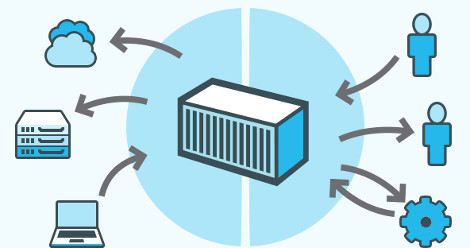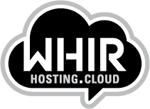Shippable Formations Launches to Easily Test and Deploy Complex Docker Applications
Product line designed to address major issues that slow down continuous integration and functional testing of complex Docker applications
June 18, 2015


logo-WHIR
This article originally appeared at The WHIR
Shippable, a developer of DevOps tools for Docker applications, has launched its Shippable Formations product line which makes it easy for developers to see the status of all code versions running across the software stack, allowing them to detect code changes that caused bugs, and push out clean code with one click.
Shippable Formations is designed to address major issues that slow down continuous integration and functional testing of complex Docker applications. It also simplifies deployment to any cloud provider and easy rollbacks to older versions, according to the company.
Formations is available as Software-as-a-Service starting at $7 per container per month, and the company is also beta testing an on-premise version for companies that can’t store data remotely for security or compliance reasons.
According to Shippable CEO Avi Cavale, Docker has made it incredibly easier to setup and run test environments. Traditional test infrastructure can typically take 15 to 30 minutes to bring up, causing many companies to amalgamate days worth of code changes into a single test. “Docker lets you bring [test environments] up in 20 seconds…This means you can do 30 to 40 test deployments per day,” he said.
Google Kupernetes, for instance, does 150 to 200 daily builds using the Shippable platform.
Being able to do tests more frequently means that conflicts caused by code changes can be identified and routed out more quickly.
But Formations goes even further, accounting for the complexities of applications with different tiers. For instance, a three-tier application with Frontend, API, and Database tiers could have multiple conflicts between different developers and different tiers. Formations provides the insight to drill down into various application tiers to find code commits that might conflict with other parts of the application.
Formations, Cavale said, is a “DevOps 2.0” solution that means developers no longer have to write code and scripts in unfamiliar languages to make deployments. Developers can run automated integration and functional testing against a real topology. Also, applications are decoupled from servers, giving developers full visibility into their applications without needing SSH access or separate configuration management, version management, or continuous deployment tooling.
Formations is fully compatible with Docker Compose for multi-container topologies, and integrates with source code management tools such as GitHub and Bitbucket.
Shippable Formations can also be used with CI tools like Jenkins, TravisCI, or CircleCI, or combined with Shippable’s own continuous integration service, Shippable CI/CD.
This Shippable CI/CD service has also been updated this week to deal with more advanced Docker workflows. This includes the ability to use any Dockerfile or Docker image for builds and tests without having to provision your own build host, and to monitor changes to Docker images no matter who owns or manages them, and Google Container Registry integration.
Running more than 60,000 containers weekly, Shippable had initially developed Formations for itself, and now it’s generally available. “As our customers started to adopt Docker and ask for features, we realized they were describing what we’d already built for ourselves,” Cavale said. “We look forward to continuing to work with the community and address the needs of developers.”
Docker has been growing in popularity for some time. Earlier this month ProfitBricks launched a preview version of its Docker hosting platform which enables developers to build applications in the ProfitBricks cloud and access dedicated resources that can autoscale the Docker hosts.
This first ran at http://www.thewhir.com/web-hosting-news/shippable-formations-launches-to-easily-test-and-deploy-complex-docker-applications
About the Author
You May Also Like

.jpg?width=300&auto=webp&quality=80&disable=upscale)





